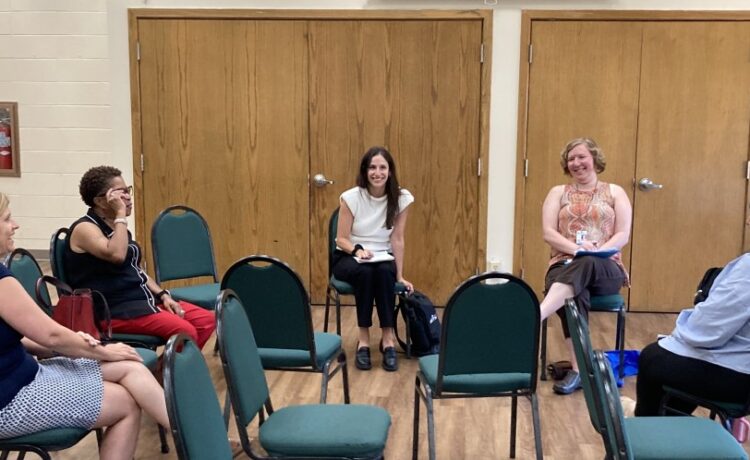As money starts to flow from settlements of lawsuits against drug manufacturers and distributors, originated by Illinois Attorney General Kwame Raoul and his colleagues around the nation, Lake County officials are exploring ways to help drug-use victims.
With $3.4 million in hand and another $5.6 million anticipated from agreements reached, Liz Nelson, the county’s opioid coordinator, said data is being collected to help guide the development of a strategic plan.
Along with the money going to the county, cities with more than 30,000 people in the county — Waukegan, Gurnee, Buffalo Grove and Mundelein — will also receive funds to help victims of unintended or intentional opioid use.
Nelson said she anticipates the county will issue grants to organizations that already have an expertise helping people impacted by opioid use, either prescribed or self-medication.
Issuance of grant applications is months away. Before starting the approval process for the requests, Nelson said a consultant hired by Lake County is gathering extensive data from the community in a variety of ways.
“We are going to review our data on the social determinants of the crisis,” she said. “We’ll look at poverty, unemployment, emergency room visits, workforce (and more). We’ll use this data to learn what we need to know to make decisions.”
The County Board will likely approve the strategic plan in November leading to grant applications distributing a portion of the money to organizations skilled at helping victims of opioid use.
Taking a measured approach to using the money, Nelson said a limited number of grants will be awarded in the first round. As the initial programs unfold, there will be an opportunity for evaluation.
“We’re going to see how it is going, and work with our data,” she said. “We’re going to evaluate everything we’re doing, and see what we need to improve. This is a very complicated issue.”
Mary Roberson, the founder and CEO of the Waukegan-based Northern Illinois Recovery Organization (NIRCO), is conducting focus groups for the county of individuals who lived through the experience of using opioids or are in recovery.
Heading an organization focused on recovery from different forms of addiction, Roberson said she wants to see the money go to help members of the communities most impacted. Those communities are not geographic in nature. They are composed of people with similar experiences of substance abuse.
“We’re gathering information from these individuals to see how the money stays in the community and benefits the community,” she said. “This can come from abusing medication for chronic pain.”
Roberson said people can sustain an injury where they need medication to live through the pain while they recover. Some of those treatments include opium-based medications which were prescribed by a physician and sold by a pharmacy.
“They misused prescription medication,” she said. “They had a prescribed medication, abused it, got street drugs and overdosed. Overdoses can be fatal or non-fatal.”
During late July and early August, Lake County conducted a series of listening sessions, in person and virtually. They were designed to hear from members of the public and organizations dealing with victims of the opioid crisis.
RuthAnne Hall, an assistant administrator with the county, attended a listening session on July 31 in Waukegan. She said education is important and wraparound support for families where a member has an addiction.
“We should teach them early, so they can recognize an addiction in their family,” Hall said. “Sometimes it’s one you don’t know you have yet.”
With a focus on education, Nelson said in an email the county is working with the Regional Office of Education, using some of the funds to work with educators to develop curriculum related to opioids for school districts to comply with legally required educational programs.
David Motley, the public relations director for the city of Waukegan, said in a text the city has received funds through the various settlements. Plans are underway to determine the best use.
“These funds will be dispersed and will be prioritized towards opioid crisis relief in our community and for prevention and proactive programs,” Motley said in the text.
Originally Published:














